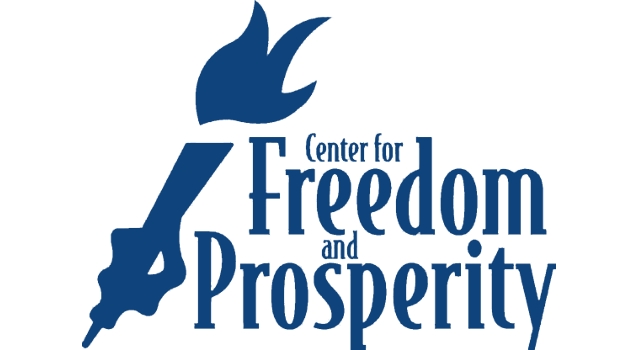I recently took part in a symposium on “The Budget Deficit and U.S. Competitiveness.” Put together by the Council on Foreign Relations, five of us were asked to concisely explain our thoughts on the issue.
Here’s some of what I wrote:
Excessive government spending can slow growth by diverting labor and capital from more productive uses. Punitive tax rates can hinder prosperity by discouraging work, saving, investment, and entrepreneurship. And large budget deficits can undermine competitiveness by “crowding out” private capital and building negative expectations of future tax increases. In extreme cases, high budget deficits can destabilize entire economies, either because a government resorts to the printing press to finance deficits or because investors lose faith in a government’s ability to service debt, thus leading to a sovereign debt crisis. …The best way to control this red ink while also boosting competitiveness is to cap the growth of government spending. If revenues increase by an average of 7 percent each year (as the president’s budget projects, even without tax increases), then we can reduce deficits by making sure spending grows by less than 7 percent annually.
Not surprisingly, the other participants in the symposium did not share my views.
Maya MacGuineas of the Committee for a Responsible Federal Budget wrote that, “Revenues will have to go up to deal with the deficit” and also wrote that, “Consumption taxes could help promote savings; a carbon tax could help lead to improved energy policies.”
She’s wrong on consumption taxes, by the way. A consumption tax hits both current consumption and future consumption, so the incentive to save is left unaltered. And if you want to get technical, something like a VAT would be anti-savings since it would reduce after-tax income for households, resulting in less consumption and less saving.
Greg Ip of the Economist (I’m always mystified some people think that magazine is for less government) wrote that “…taxes will have to rise” and specifically called for, “a broad-based consumption tax or, more narrowly, by raising the gasoline tax.”
While I disagree with Maya and Greg, I should point out that they are not nearly as misguided as Obama, Reid, Pelosi. Unlike those politicians, both of them explicitly warn against class-warfare tax increases such as higher marginal tax rates on work, saving, investment, and entrepreneurship. These are the types of tax increases that have the worst impact on economic performance.
On other hand, a consumption tax (i.e., a value-added tax) would be the worst possible result since such a levy would be a giant money machine for big government. So while a VAT does not do as much damage, per dollar raised, as higher income tax rates, it would impose considerable damage by financing much bigger government. So McGuineas and Ip aren’t too bad on economics, but they’re really bad on political economy.
This video explains why a VAT is a terrible idea and the other video looks at the empirical evidence against big government.
Sebastian Mallaby of the Council on Foreign Relations and C. Fred Bergsten of the Peterson Institute for International Economics also took part in the symposium. But they only wrote that deficits are a threat to competitiveness and did not suggest any solutions.

